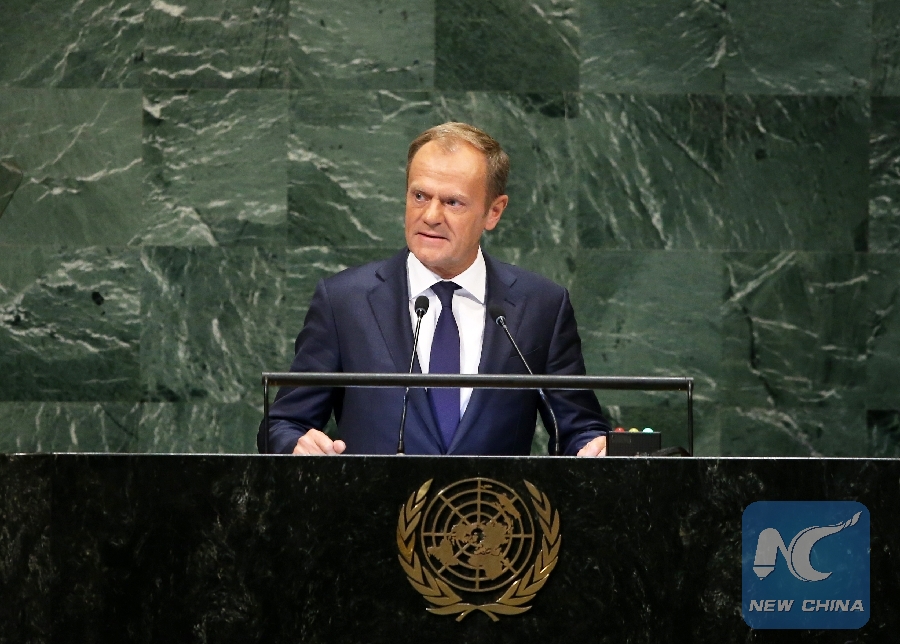
European Council President Donald Tusk addresses the General Debate of the 73rd session of the United Nations General Assembly at the UN headquarters in New York, on Sept. 27, 2018. (Xinhua/Qin Lang)
UNITED NATIONS, Sept. 27 (Xinhua) -- European Council President Donald Tusk said Thursday that the European Union is committed to the Iran nuclear deal as long as Iran remains fully committed to it.
The deal has also helped to create space for dialogue on other concerns, like Iran's regional behavior and ballistic missile programs, he told the United Nations (UN) General Assembly while addressing nuclear issues.
The agreement is good for European, regional and global security, he said. "That is why the European Union is committed to maintaining the agreement -- as long as Iran remains fully committed to it."
Tusk was commenting on U.S. President Donald Trump's decision to quit the 2015 nuclear deal between Iran and six world powers -- Britain, China, France, Germany, Russia as well as the United States, and to re-impose sanctions on Iran.
Under the deal, officially known as the Joint Comprehensive Plan of Action, Iran agreed to limit its nuclear program in exchange for the lifting of international sanctions.
After the U.S. withdrawal, the remaining five powers have been trying to keep the deal afloat.
After chairing a meeting of the foreign ministers of the five powers and of Iran on Monday, EU's foreign and security policy chief Federica Mogherini said the EU will set up a legal entity to circumvent U.S. sanctions.
The legal entity will allow European companies to continue to trade with Iran in accordance with EU law and could be open to other partners in the world, said Mogherini.
The EU action immediately drew fire from Washington.
U.S. Secretary of State Mike Pompeo said the next day that the EU move was unacceptable. Speaking at a UN event, Pompeo said Washington "was disturbed and, indeed, deeply disappointed to hear the remaining parties in the deal announce they're setting up a special payment system to bypass U.S. sanctions."
"This is one of the most counterproductive measures imaginable," he said.


